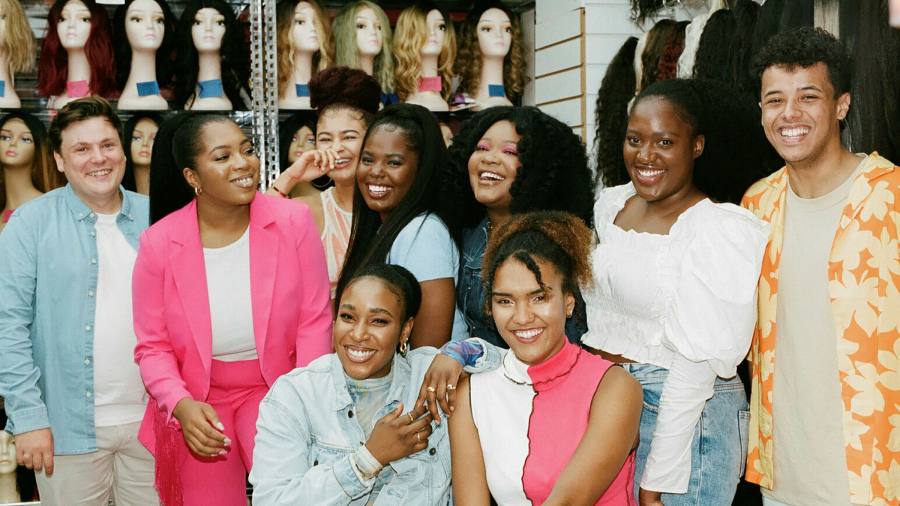The writer is author of ‘The Reset: Ideas to Change How We Work and Live’
My hair was my earliest form of self-expression but while I was working in a corporate role, the styles I could wear felt more limited. So when I left in 2018, my hair became even more of a creative outlet and I have never looked back.
For many black women, working from home has injected freedom and flexibility into how they style their hair. Video meetings provided a shield against colleagues’ comments and the pressure to conform to white standards of “professionalism”.
Shopping for black hair care can be fraught with negative experiences, however, and until recently there had been little innovation in black hair extensions, despite the global wig and extensions market being valued at $2.4bn in 2020. That problem is being addressed by a new wave of black female entrepreneurs who are creating products to meet the needs of millions of underserved consumers.
In 2019, when fashion influencer Freddie Harrel launched RadSwan, a direct-to-consumer (D2C) beauty brand that makes premium synthetic afro hair extensions and wigs, she became one of the few black women to raise as much as £1.5m from female investors, including BBG Ventures and Female Founders Fund.
A year later, Varaidzo Tendai Moyo, a London School of Economics graduate and ex-management consultant at Bain, launched Ruka Hair. Moyo wanted a solution to her continued frustration in trying to find curly hair extensions. She secured $2.24m in early-stage VC funding to build the hair equivalent to Rihanna’s Fenty beauty brand.
These women have revolutionised the hair extension market — but why has it taken so long for the VC world to wake up to this opportunity? Historically, not enough capital has flowed towards black women founders, especially in the hair and beauty sectors. It is well documented that the VC funding gap continues to disadvantage female entrepreneurs.
According to Nicole Crentsil, founder of Black Girl Fest and an angel backer for Ada Ventures who invested in Ruka Hair, some of the reasons for the lack of investment are market misconceptions and a lack of information about who black women are as a consumer group.
“It’s the lack of understanding of the market size and market opportunity and scalability,” Crentsil says.
She adds that some of the questions a lot of black founders face from VCs when it comes to the hair industry include, “are you going to see repeat purchases? Do black women buy hair as many times that you’re saying they do.
“When you’re speaking to black investors who understand that we simply ‘get it’, it makes it far easier for black founders to actually raise investment and to scale their businesses,” Crentsil says.
Crentsil was sold on the idea of Ruka Hair as soon as Moyo talked to her about the product: “Hair extensions that actually match your hair type. I thought why weren’t products being created that helped me as a consumer make better decisions about my buying habits?”
Rebundle, a St Louis-based D2C hair start-up, has announced it has raised $1.4m to make extensions out of banana fibre. It is a unique solution tackling two problems: itchy scalps and plastic waste. It is exciting to see this innovation and — speaking as a conscious consumer who enjoys experimenting with different hairstyles — it makes great business sense.
What is even more encouraging is that these beauty brands are not only focusing on product but aiming to revamp and improve the shopping experience. Black women spend six times more than their white counterparts on beauty, but you don’t see that reflected in what is available to purchase.
These D2C brands are a game changer for black women who are either stuck with a poor experience on the high street, or are making do with extensions from Amazon that don’t match natural textures or fit poorly.
Injecting a curated, personalised and community-driven approach to the shopping experience is overdue. But this welcome change also means that black women can finally choose from a range of sustainable and affordable hair extension brands.
https://www.ft.com/content/99509433-4f14-41a6-a00e-d9d2461d04e9
 fashion rec fashion wanted
fashion rec fashion wanted



